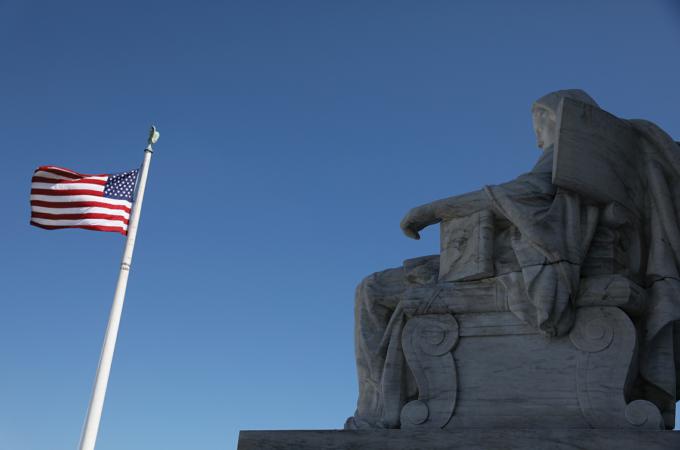Court's decision a special victory for local school choice advocates
BRAINTREE -- On June 30, the United States Supreme Court handed down its decision for "Espinoza v. Montana Department of Revenue," ruling that states with education tax credit programs cannot discriminate against families whose children attend private schools with religious affiliations. The decision marked a victory for advocates of school choice, including some from Massachusetts who contributed research and friend-of-the-court briefs for the plaintiffs.
Massachusetts and Montana are two of the 38 states that have Blaine amendments, named after the 19th-century Maine representative James Blaine. These amendments were passed in the late 19th and early 20th centuries in a climate of anti-Catholic sentiment during waves of immigration from Catholic countries. These amendments prohibit the public funding of religiously affiliated private schools. Massachusetts was the first state to pass such a law, and its Blaine amendment is broader than many, prohibiting public funding to any private schools.
The lead plaintiff in the case was Kendra Espinoza, whose two daughters, Naomi and Sarah, attend Stillwater Christian School in Kalispell, Montana. They were denied access to scholarships on the grounds that they attend a religious school. Espinoza was represented by Erica Smith, an attorney from the Institute for Justice.
One source of help was the Pioneer Institute, an independent research organization in Massachusetts. In April 2019, the Pioneer Institute filed an amicus curiae brief encouraging the Supreme Court to hear the case.
Dwight Duncan, a law professor at the University of Massachusetts School of Law, worked with attorney Michael Gilleran and a team of Harvard Law School students to research and draft the brief.
"We argued in our filing that the Court should hear the case because 'the history of the proto-Blaine Amendment in Massachusetts is instructive on the 19th-century religious bigotry in Montana and elsewhere that stands between petitioner Ms. Espinoza's children and a good education,'" Duncan wrote in an August 2019 article.
After the Supreme Court decided to hear the case, the Pioneer Institute filed another brief in support of Espinoza.
The Court handed down its decision on June 30, ruling 5-4 in Espinoza's favor.
The court did not repeal Montana's Blaine amendment, but it ruled that if a state has programs to fund private schools, such as through scholarships, vouchers or tax credits, the state cannot withhold such benefits from families that choose to enroll in religious schools.
"A State need not subsidize private education. But once a State decides to do so, it cannot disqualify some private schools solely because they are religious," Chief Justice John Roberts wrote in the majority opinion.
Jamie Gass, the director of Pioneer Institute's educational research and programming, said they were "really pleased" that Justice Samuel Alito cited the Institute's brief and referred to the history of Massachusetts in his concurring opinion.
"It's a landmark decision. This is not a kind of decision that comes along every day or even every decade. Many of these Blaine amendments, like the ones in Massachusetts, have been around over 150 years. So, it really is a remarkable turn of events," Gass said in a July 9 interview.
The Pioneer Institute released a statement applauding the Supreme Court's decision on the same day it was handed down.
"Nationally, over 250,000 largely poor and minority students benefit from private-school choice through education tax credits. Today's ruling makes it possible for many more students to benefit," the statement read.
In a July 10 interview, Duncan said the Espinoza case is "part of a bigger picture" of Supreme Court decisions concerning religious freedom. On July 8, a week after the "Espinoza" decision, the court ruled in favor of religious freedom in two other cases, "Our Lady of Guadalupe School vs. Morrissey-Berru" concerning Catholic schools' freedom to choose who to hire, and "Little Sisters of the Poor v. Pennsylvania" concerning exemptions from a mandate to provide contraception in healthcare plans.
"I think religious freedom is one of the things that made this country great from the get-go, along with free speech and freedom of the press and freedom of assembly. So, I rejoice when the Supreme Court recognizes that," Duncan said.



















